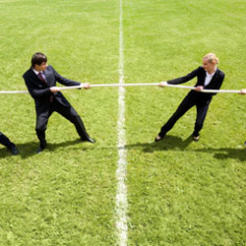The sector is increasingly pushed to become more commercialised. Leigh Daynes reflects on how a charity can follow this trend and retain its distinct identity.
Recently I joined a panel of charity sector leaders to debate how we best focus our (often limited) resources.
Which got me thinking, how do not-for-profit organisations navigate a complex, changing world?
I think it’s about asking ourselves:
- where and how do we achieve impact? (and how do we measure it?);
- how do we advance the rights of our beneficiaries?; and
- how does all this add up to achieving sustainable change (and not dependency)?.
- Because we’re not here to save the world; we’re here to help change it
Received wisdom and current practice in some parts of the sector suggests we’re some way off the mark.
The marketers told us the best use of resources is to chase market share and win ‘top of mind’ status. Millions has been spent on brand building and donor recruitment campaigns. But to what demonstrable effect? Important new research from the LSE and Birkbeck suggests the public has had enough of aid agency marketing communications campaigns. They say we manipulate their emotions, saturate them with suffering and leave them feeling like we’re no different from commercial behemoths.
Governments invited us to be agents of the state in the delivery of services. Multi-million pound contracts have been awarded to the voluntary sector. We saw this as a way of achieving our mission. But I wonder what this has done to our independence and autonomy, and its effect on our raison d’être.
What’s more, in the rush to professionalise we commercialised our activities and risked losing our identity. Weren’t we formed by citizens seeking social justice and the highest regard for human rights and dignity? This seems to me to be the greatest lost narrative of our time.
So what is the best use of resources? I’ve learnt this much:
- Our people are our greatest asset: nurture, inspire and support staff and volunteers and awesome things happen.
- Partnerships unlock potential, including with beneficiaries as agents of change, not hapless victims.
- A clear purpose, clearly stated and firmly applied, is the ‘moral compass’ that fixes on achieving impact.
Leigh Daynes is executive director of Doctors of the World UK









